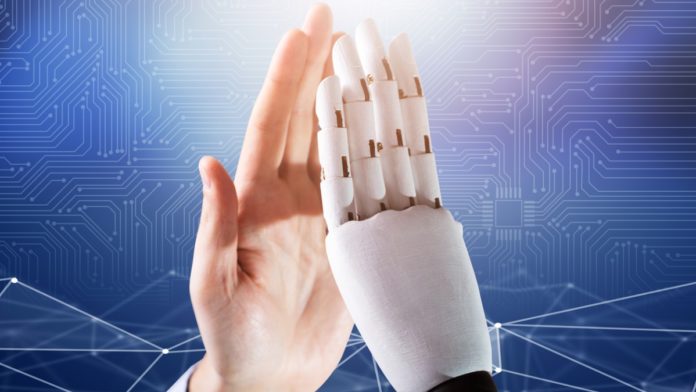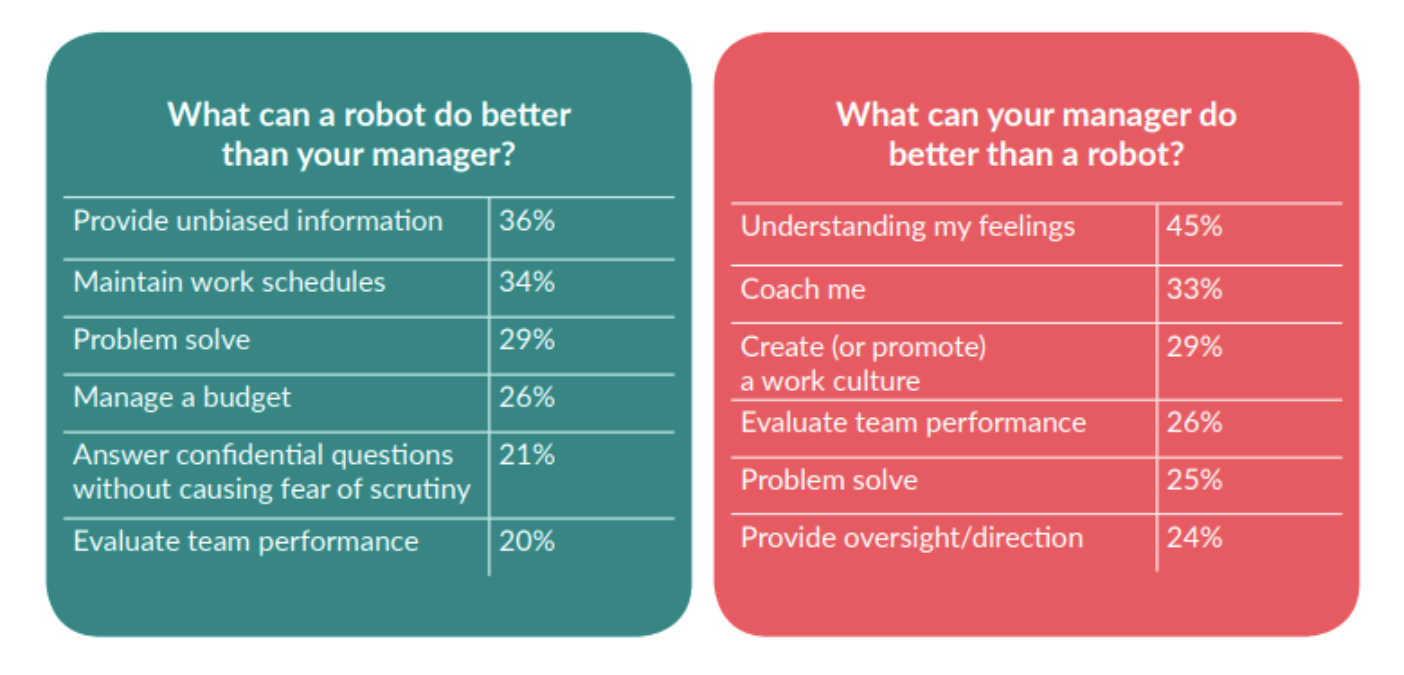
Here’s a conundrum: One report says 67 percent of workers prefer to report inappropriate behavior to their manager rather than through any other channel. Meanwhile, another report says 64 percent trust robots more than they do their managers.
The first study is the Employee Experience Survey from employee relations and investigations management platform HR Acuity. The second is the AI@Work study from Oracle and research firm Future Workplace.
To be fair, HR Acuity’s survey was narrowly focused and AI@ Work didn’t delve specifically into reports of bad behavior. But the disparity in how employees perceive their managers, and how those perceptions may be influenced by circumstance, is worth considering.
Conundrum: Study says 67% of workers prefer to report bad behavior to manager. Another says 64% trust robots more than managers. Shades of gray? #HR #HRTech #HRtribe Share on XReporting Bad Behavior
According to HR Acuity, 85 percent of employees know the procedures they should follow to report inappropriate, illegal or unethical behavior. While that 67 percent prefers to speak with their managers, only 37 percent contact HR and just 6 percent trust hotlines.
No matter how they report, 39 percent of employees aren’t sure their issues will be addressed fairly and 46 percent fear retaliation. However, how HR handles complaints has a real impact. While workers who reported an issue were 11 percent more likely to recommend HR to their colleagues, that figure rose to 26 percent when the matter was investigated. It rose even further, to 43 percent, when it was resolved.
Acting on reports helps with the employer brand, as well. Workers whose issues were investigated and resolved—regardless of outcome—were 45 percent more likely to recommend their employer to others. That’s nearly the same proportion as the 47 percent who never experienced an issue in the first place.
HR Acuity CEO Deb Muller said the survey confirms that employers “must build trust with their employees—and that HR, managers and processes all make an enormous difference toward that goal.” However, while employers understand the value of employee experience, she noted, “they still struggle with addressing employee issues.”
Trust AI Exactly When?
That struggle will only become more complicated if the Oracle/Future Workplace survey is any indication. That AI has significantly impacted the way employees and managers interact isn’t surprising. However, the fact that more than two-thirds of workers, specifically 64 percent, trust robots more than their managers isn’t an obvious vote of confidence in HR.
Notably, 45 percent of workers—less than half—said managers are better than robots at understanding their feelings. Thirty-three percent believe managers are better at coaching while 29 percent said they’re better at creating work culture. However, 26 percent believe robots are better at providing unbiased information and 29 percent said they were better at problem-solving.

Those results, AI@Work said, “have important implications for hoq organizations can get the most value from line managers, as well as how they can best attract, retain, and develop talent.” Like most AI solutions providers, Oracle and Future Workplace contend that having technology handle administrative and routine tasks will free up managers to spend more time and energy on working with and developing their employees.
However, breaking down the results by role offers another hint that employers and workers may not be in sync. The study said HR leaders are the most optimistic about AI’s role in management (38 percent), followed by managers (31 percent) and finally by employees (19 percent).
It could be that HR and managers are simply more up-to-date about the capabilities of AI and have a better understanding of how it will fit into day-to-day management activities. However, when 81 percent of the workforce is less confident, employers face a notable challenge in terms of education, training and behavior. As HR Acuity’s research shows, employees put a lot of stock in action and results.
HR and vendors both will have to pay close attention to exactly where workers put their trust, and under what circumstances.
Sign up for our newsletter here.
Image: iStock













